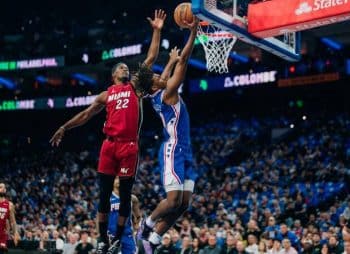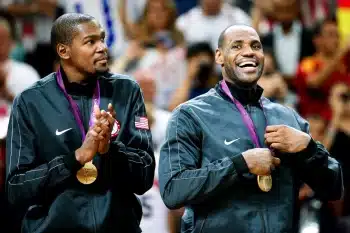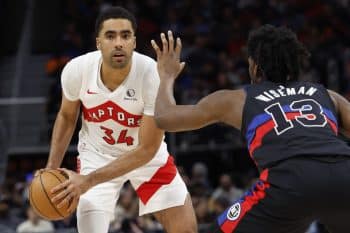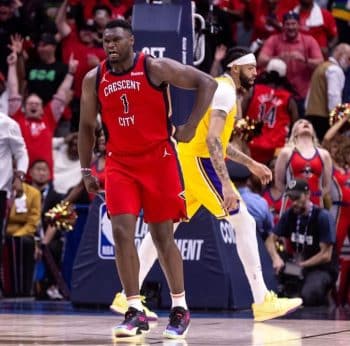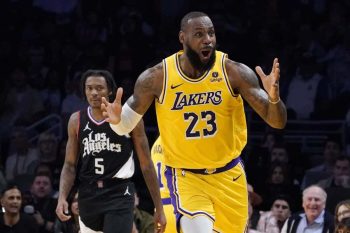NBA
Five Non-Lottery Rookies Poised To Make A Name For Themselves
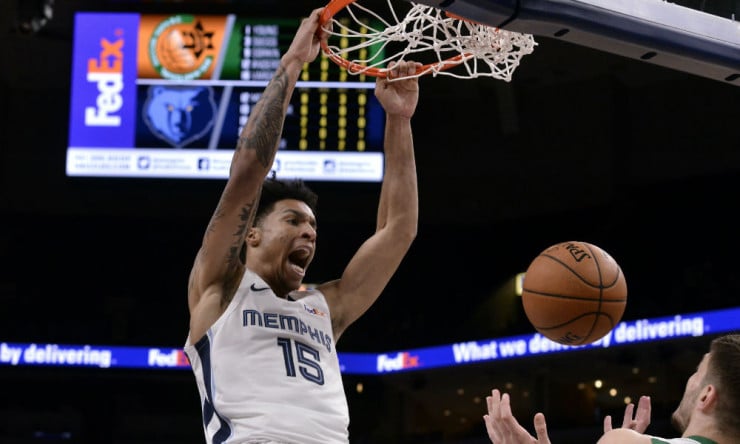
Every year, the NBA features a handful of rookies that look as if they’ll become future All-Stars. You know, the Luka Doncic’s, the Ben Simmons’, the Donovan Mitchell’s, etc. But what often goes unnoticed are the rookies that give their team solid rotation minutes, yet lack the high accolades of being a lottery choice, or in some cases, an actual draft selection. Sure, they might not ever pan out to be an All-Star, but in a league with upwards of 500 players, only 24 guys get that designation on a yearly basis.
So for every flashy rookie out there, you have at least three to four young guys who will develop into prominent rotation guys and likely hang out in the league for six-plus years. We know the big names from the lastest draft class – Zion Williamson, RJ Barrett, Ja Morant – but who are the no-names that might end up being a key piece to your favorite team five years down the road? Let’s take a look at five of them who have a real shot at becoming that player.
Brandon Clarke
Yes, Clarke is a very recognizable player who earned the MVP award at the 2019 NBA Las Vegas Summer League. But sliding all the way to 21 in this year’s draft makes him eligible for this list.
Clarke has all the intangibles you’d want from a modern big. He’s tall, athletic, strong and has a high understanding of the game on both ends of the court. Why did he slip all the way to 21st, then? A lot of it has to do with his height and length. He stands at 6-foot-8, which is obviously a bit undersized for a traditional four or five, and he doesn’t make up for it in length where his wingspan is just 6-foot-8, too. But in today’s NBA, he should plug in quite nicely at the four and – paired with Jaren Jackson Jr. – will have the ability to terrorize opposing bigs on both ends.
Another factor that may push Clarke to solidified role-player status in his rookie season? His age. Clarke will turn 24 this upcoming season and already has two to three more years of competitive experience over most of the players drafted ahead of him. With Brandon, you have an idea of where his ceiling will be – you wouldn’t consider him as raw as some of the rookies that get drafted really high based mostly off potential. But his ceiling is absolutely high enough to make a big impact in the league.
Dylan Windler
Windler is on the perfect team to be able to showcase his most prominent skills. Already a year separated from the LeBron James era, Cleveland isn’t planning on making any noise in the Eastern Conference. With Kevin Love being the only prominent player on the roster – and that might not even last past the All-Star break – they’ll likely finish in the bottom five and shoot for another lottery pick. So considering the fact that the roster is already pretty thin, Windler will definitely have the chance to score.
Windler netted 21.3 points per game as a senior for Belmont, putting up that number on a very impressive 42.9 percent from three. He also notched double-digit rebounds and 1.4 steals per contest. He’s great with the ball in his hands, but looks to make his living in the NBA as a catch-and-shoot guy.
With two young guards in Collin Sexton and Darius Garland feeding him the ball, Windler could very well produce respectful numbers once he gets comfortable into the season. He likely won’t be the focal point of many defensive schemes, so he should garner quite a few open looks. And like mentioned, he has the athleticism and ball-handling skills to open up lanes and get to the rim.
The Cavaliers will not be a good basketball team, no one will argue that, but there’s no reason Windler can’t flourish and grow his game into a nightly bench scorer.
Kevin Porter Jr.
For some of the same reasons above, Porter will have every opportunity in the world to make an impact with Cleveland. There was plenty of speculation that he would be selected in the top 10 heading into the draft but for whatever reason, he slipped all the way to number 30 – the last pick of the first round.
Porter Jr. was one of the most athletic players in the draft class. He came off the bench for USC but still played a bit over 20 minutes per night. He was suspended for the first part of his freshman season, so that could have played a factor in why he came off the bench. He almost averaged 10 points, however, and did so on 41 percent shooting from three.
His athleticism alone will be enough to get him significant minutes on the court this year for Cleveland, but if he continues to work on various aspects of his game, he can find a role on just about any team moving forward. You can always improve a player’s shooting, dribbling, passing, etc. But it is very difficult, if not impossible, to make someone more athletic.
Carsen Edwards
You remember him. He was the guard for Purdue during the most recent March Madness tournament that was just getting buckets. During the tournament, he put up 42 points twice and 29 once. His second 42-point outing came in the Elite Eight where they lost in overtime to the eventual champion, Virginia.
His scoring in the tournament wasn’t just a fluke. Twice he was named to an All-American team.
Edwards was projected to be a mid-to-late first-round selection, primarily due to his size (5-foot-11), but fortunately for the Celtics dropped all the way to pick No. 33.
Boston as a team isn’t dying for scoring, but its bench unit could certainly use some. He won’t log serious minutes to start the season, but his scoring abilities should be enough to get him on the court at an early stage of the schedule – and he should see increased minutes should his play merit them. He has a fundamentally-sound shot that stays rather consistent and – although his efficiency dipped his junior year in college – that shouldn’t be an issue for him with Boston, as he will not be called upon to generate a bulk of the offense as he did in college.
Ignas Brazdeikis
Iggy, as many refer to him, will benefit in similar ways to Windler and Porter Jr. The Knicks aren’t that good, but they are loaded with plenty of young talent, and Ignas is a large part why. He does a lot of things well, especially on the offensive end of the court, and should have an immediate impact on the Knicks when they open the season.
He averaged just over 14 points per game for Michigan as a freshman, and his play ended up earning him the Big Ten Freshman of the Year award. He’s a great shooter from any level on the court and is able to generate his own shot when necessary.
One example of why he’ll shine as a rookie? He was the first player in the 2019 NBA Las Vegas Summer League to drop a 30 point game. This shows he’s not afraid of the moment, so Madison Square Garden shouldn’t be too taunting his first time officially lacing it up as a Knick. Iggy oozes confidence on the court, so this should pay huge dividends as the season progresses and he develops his game.
Well, there you have it. There are plenty of players that could have made it on this list, but these players with their specific locations and skill sets seem to have about as good a chance as most lottery picks in producing a solid rookie season. For most of these guys, the situation is just right. And if they live up to the expectations set by the team that drafted them? They should all have long careers.
But only time will tell.
